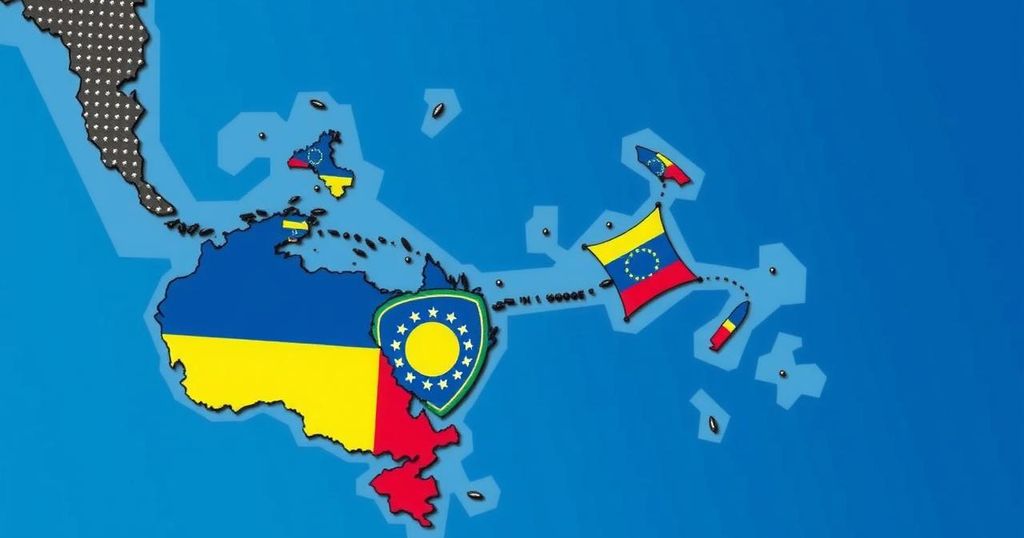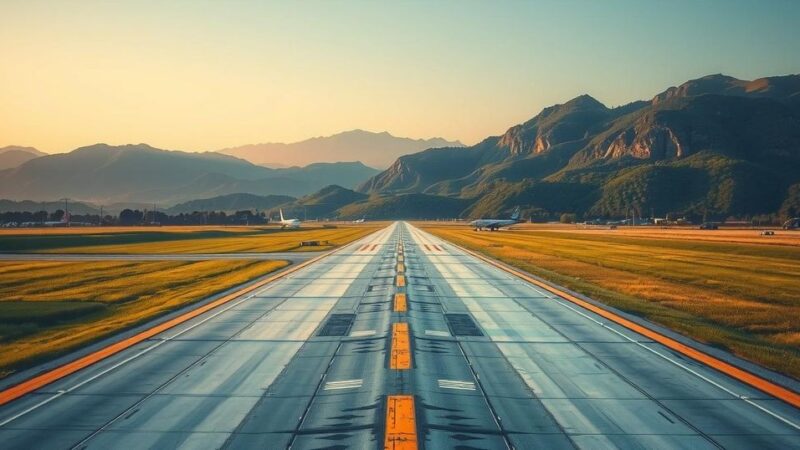Venezuelan President Nicolas Maduro vowed his country will not be silenced after Brazil vetoed its BRICS membership bid. Maduro criticized Brazil’s decision as “hostile” amid claims of a disputed election result. Relations between Venezuela and Brazil’s leadership have become strained post-election, raising questions about regional alliances and cooperation.
On October 26, 2024, President Nicolas Maduro of Venezuela publicly declared that his nation would not be silenced following Brazil’s rejection of its application to join the BRICS coalition of emerging economies. This decision came during a summit held in Kazan, Russia, where Venezuela expressed significant indignation, labeling Brazil’s veto as a “hostile” and “immoral” action. The South American nation, grappling with a severe economic crisis attributed to U.S. sanctions, has long aspired to become a member of the BRICS group. Upon returning from Kazan, President Maduro asserted on state television that “no one will block or silence Venezuela, not today, not tomorrow, not ever,” although he refrained from directly mentioning Brazil in his remarks. Despite being traditionally aligned, ties between President Lula da Silva of Brazil and Mr. Maduro have become increasingly strained, particularly in light of the controversial presidential election held on July 28, in which the opposition claims Mr. Maduro was defeated. Former Foreign Minister Celso Amorim, an advisor to President Lula, indicated that the veto stemmed from a “breach of confidence” on the part of Venezuela. He noted that Mr. Maduro had assured President Lula of releasing detailed election results from the recent vote, a promise that remains unfulfilled. The Venezuelan opposition continues to assert that these results would reveal that Mr. Maduro suffered a significant loss to Edmundo Gonzalez Urrutia, a rival who has fled to Spain amid legal pressures. In contrast, Mr. Maduro maintained that during his meetings in Kazan with representatives from nearly thirty countries, all affirmed his claim of having achieved a “great electoral victory.” The BRICS group currently comprises Brazil, Russia, India, South Africa, and China, having expanded in 2024 to include Ethiopia, Iran, Egypt, and the United Arab Emirates.
The situation surrounding Venezuela’s ambition to join BRICS is situated within the broader context of the country’s ongoing economic turmoil, which has been exacerbated by U.S. sanctions that the Venezuelan government attributes as the root cause of its challenges. President Maduro’s administration, facing allegations of electoral misconduct and lack of transparency, has sought international validation through membership in influential global groups. The recent events underscore the intricate relations within diplomatic frameworks, particularly as Maduro navigates the political landscape following a disputed election and waning support from countries that were once allies, notably Brazil.
In summation, Venezuela’s pursuit of BRICS membership remains fraught with challenges, particularly after Brazil’s recent veto. Despite President Maduro’s defiant stance against perceived attempts to suppress Venezuela’s voice on the international stage, the implications of internal electoral disputes and international relations complicate this ambition. The dynamics within BRICS, coupled with the current geopolitical climate, will likely continue to shape Venezuela’s economic and political future.
Original Source: www.thehindu.com







